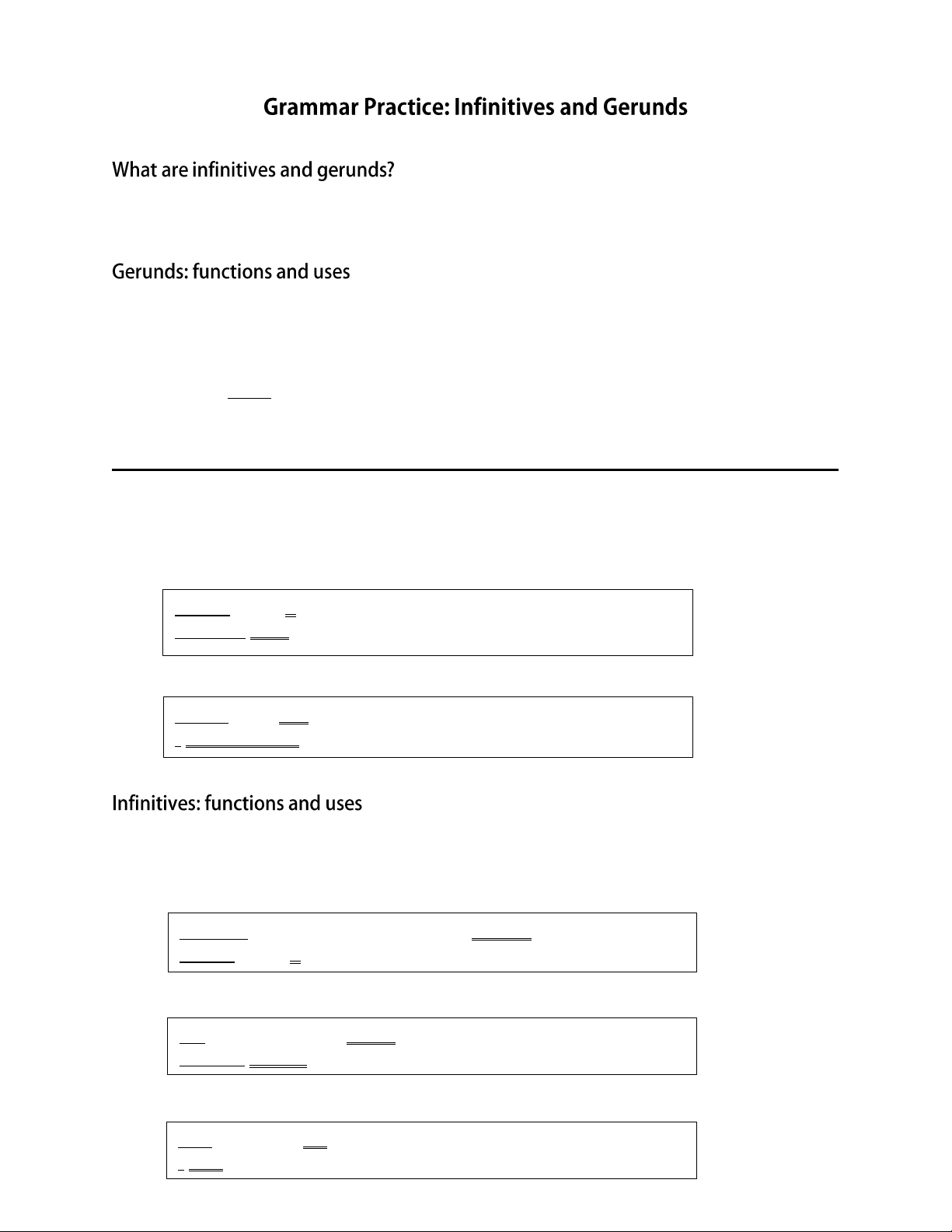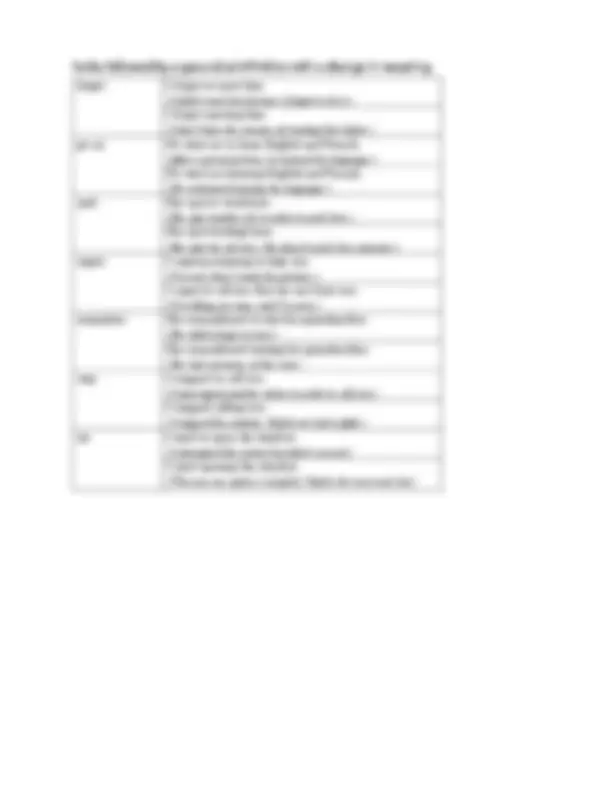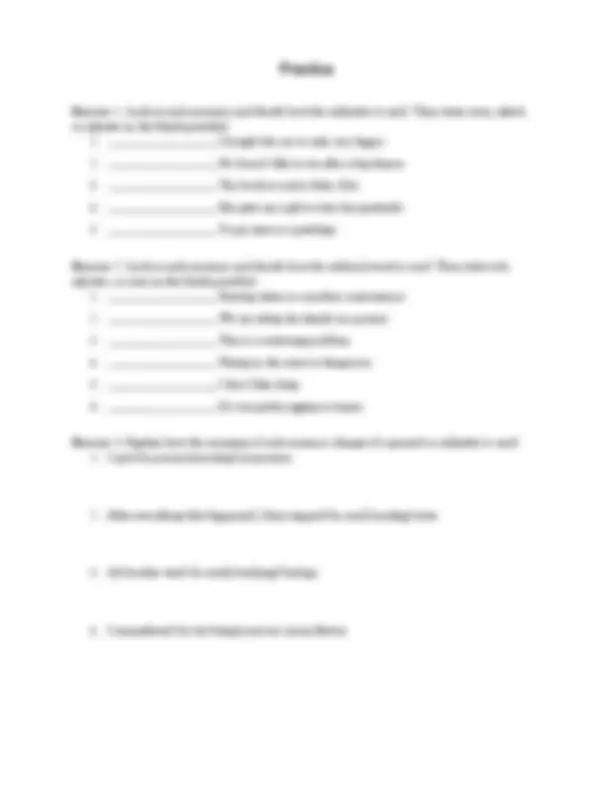




Study with the several resources on Docsity

Earn points by helping other students or get them with a premium plan


Prepare for your exams
Study with the several resources on Docsity

Earn points to download
Earn points by helping other students or get them with a premium plan
Community
Ask the community for help and clear up your study doubts
Discover the best universities in your country according to Docsity users
Free resources
Download our free guides on studying techniques, anxiety management strategies, and thesis advice from Docsity tutors
Gerunds and infinitives are sometimes referred to as verb complements. They look like verbs but do not function like them. A gerund ends with -ing and names ...
Typology: Lecture notes
1 / 4

This page cannot be seen from the preview
Don't miss anything!



Gerunds and infinitives are sometimes referred to as verb complements. They look like verbs but do not function like them. A gerund ends with - ing and names an activity rather than a person or thing. Any action verb can be made into a gerund: bake baking. Gerunds look like present participles, which are used to form an action in progress or incomplete actions: she was baking cookies. However, gerunds are different from present participles because gerunds are - ing verbs that function as nouns. Gerund Present Participle Baking takes a lot of time. She was baking cookies. I don’t like living alone. I am living alone. Spelling is my best subject. He was spelling the new words. Gerunds can appear at the beginning of a sentence when used as a subject : Gerunds can act as an object following the verb or preposition: An infinitive is a verb + to : to think. Infinitives can function as nouns (as subjects of the sentence), adverbs, or adjectives. Infinitive as nouns (subjects) at the beginning of a sentence: Infinitives as adverbs following the verb: Infinitives as adjectives following a noun: Jogging [subject] is [verb] a hobby of mine. Fidgeting helps me focus. Daniel [subject] quit [verb] smoking [object] two months ago. I look forward to helping you paint the house. To travel [noun/subject] around the world requires [verb] a lot of money. To give advice is easy. Tara [noun/subject] has [verb] the ability to succeed [adjective]. I have some things to sell. Jim [noun/subject] always forgets [verb] to eat [adverb]. My sister decided to get a job.
abhor discontinue give up (stop) prevent urge acknowledge discuss keep (continue) put off warrant admit dislike keep on recall advise dispute mention recollect allow dread mind (object to) recommend anticipate endure miss report appreciate enjoy necessitate resent avoid escape omit resist be worth evade permit resume can’t help explain picture risk celebrate fancy necessitate shirk confess fear omit shun consider feel like permit suggest defend feign picture support delay finish postpone tolerate detest forgive practice understand agree demand mean seek appear deserve need seem arrange determine neglect shudder ask elect offer strive attempt endeavor pay struggle beg expect plan swear can/can’t afford fail prepare tend can/can’t wait get pretend threaten care grow (up) profess turn out chance guarantee promise venture choose hesitate prove volunteer claim hope refuse wait come hurry remain want consent incline request wish dare learn resolve would like decide manage say yearn begin can’t stand hate love propose can’t bear continue like prefer start
Exercise 1. Look at each sentence and decide how the infinitive is used. Then write noun, adverb, or adjective in the blank provided.